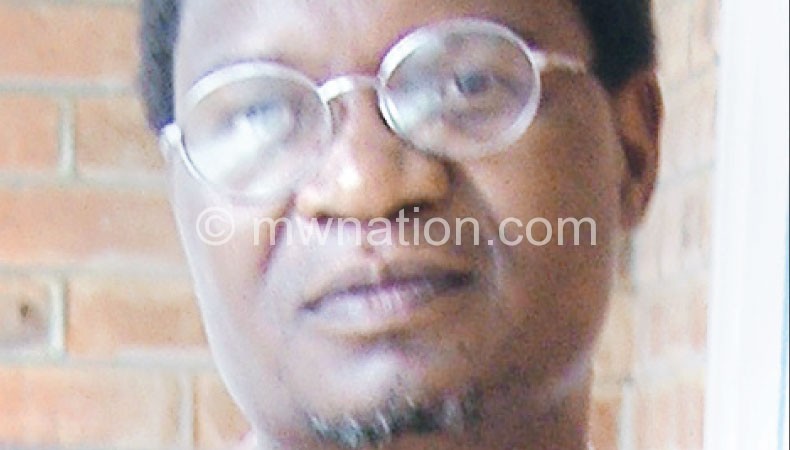‘People do not go into offices for national interests’

competence to serve people
The court battles the country experienced over results of presidential elections, elongated the time the country has had no Parliament, no Cabinet and the grounding of business to a halt. Frank Namangale talks to associate professor of law at Chancellor College Garton Kamchezera to explain on what this entails.
Q: What is your view on this situation where we have no Parliament, no Cabinet?
A: In a country where cabinets and most of the members of Parliament primarily serve their interests and those of their political parties and not national ones, not having them around may not necessarily be a bad thing. However, I still see three main sources of situations that we might rue as a nation. The uncertainty that the situation creates will be adverse, especially to the market—trade and business—which malfunctions in the midst of uncertainty.
There will also be increased governmental ineffectiveness because of the uncertainty and the gaps that this vacuum creates at the ministerial level and the particular lack of grip on part of the current presidency; in that vacuum, we will be grooming and tolerating a dictatorship as key decisions will be in one office, with possibilities of those not entitled to advise or influence the President doing so and in the vacuum, corruption will flourish as greedy politicians, civil servants, and business people re-align, make deals, and scheme to further their self interests.
Q: What areas of operations could be seriously affected?
A:Representation of people’s interests through certain —not all members of Parliament and continued delay in having greater functioning Local Government, which could be good for effective service delivery.
Q:Could this be reason enough to think of reforms of our laws?
A: No; this mess has been a result of mediocre work, indiscipline and sleaze on part of some of the people involved in the planning and implementation of these elections in the context of an ineffective government.
Q: What can you suggest as a way forward?
A: I think people in this country need to shift from the “it’s okay culture”, whereby we are poor people in making people responsible for their failures in the performance of duties.
We need to have the Malawi Electoral Commission (MEC) plan and work early on elections. They need to effectively approach elections as a cycle; and not as a one year event. This means that they should start working on the next elections as soon as this mess is over.
Q: In a scenario where MEC or other political stakeholders are saying more people voted than the number of those registered, would you share a view with some political players that transfers of voters could be a contributing factor to some of these scenarios in that voters transferred to a particular area and voted there?
A: This question can only be answered if we know that some areas had fewer voters than registered and that such shortfalls balance of the excess numbers in those areas with more votes than registered voters.
This is why just recounting where there are just excess votes is sloppy. It is an approach that shuts itself to the probability of fraud, which is patent in the context of the chaos, sleaze, and self-interested drive to get into positions of easy access to public resources that characterised these elections.
Q: What lessons should Malawians draw from this?
A: The country should regard what we have as an opportunity to reflect on what type of leaders the country needs and whether we need politicians to do what they have been doing. So far, the dominant reason these leaders go for these offices is not the national interest but the interests of individuals and cliques that use political parties to access power, material resources, status, opportunity, and influence. Most of them do not have the competence and motivation to do the jobs we suppose they will do for the nation. Not having these people in those positions is not a loss but a gain for the nation.
Q: You seem to be suggesting we do not need politicians, is that possible?
A: The country is going on at the moment. May be the absence of politicians at these levels may actually make the civil service re-discover certain degrees of efficiency and effectiveness that may benefit the nation more. The problem caused by the present chaos would be that our laws and system have been premised on the assumptions that we need these politicians. The country might be better off without a President, Cabinet, or indeed members of Parliament of the type we have been having.





